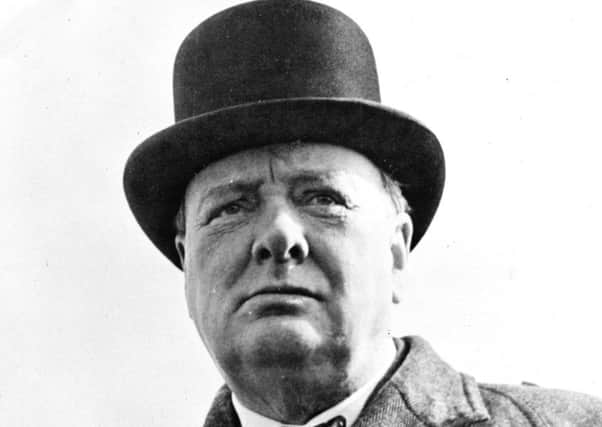Scottish independence would strip Churchill of his ‘Britishness’ – Alastair Stewart


I’ve been in Spain for five years and I’m actively looking to come back to Edinburgh. To be honest, I count the years by remembering that Scotsman Peter Capaldi was The Doctor when I left and Englishwoman Jodie Whittaker is in the Tardis now.
If you get that reference then there’s powers at play beyond my sci-fi indulgence. Last week I attended a Burns Supper in Almerimar, Spain, which was organised by a Scotsman. It was hosted by a Spanish restaurant and attended by more English than Scots. Everyone had a spectacular time celebrating Scotland’s national poet, and it was a fine evening for all.
Advertisement
Hide AdAdvertisement
Hide AdThat hodgepodge awkwardness of how to do the whole thing felt like a family get together with all the quirks and awkward mismatches that they bring. So when Nicola Sturgeon says “Scotland will be independent in five years” I don’t think of political processes, I think of social breakdowns.
The Scottish Government’s 2014 White Paper on independence promised a “social union” with the rest of the UK and after independence. The “shared language, culture and history” of the UK is a net, they said, which couldn’t just be broken because of changing political events.
Five years later and the argument doesn’t hold. Brexit is splitting family dinner tables and it’s not even happened yet. It’s spectacularly naive to underestimate how political upheaval can negate national social ties that we all take for granted.
In recent years, I’ve been fortunate to get to know Macedonia through my in-laws. As they remember well after the collapse of Yugoslavia, social kinships, historical icons, films, music and even food and drink are usually the first victims of contested constitutional reorderings.
I’m not saying Scotland is on the brink of civil war. But it’s ignorant to think that social sentiments and political ambitions are parallel entities which never meet. Emotional attachments defy elections, oil projections or even referendums and they are a dangerous thing to tinker with.
Sir Winston Churchill is my political hero. But he nearly went from being an admired fellow countryman to just another historical leader from a foreign country.
At the time First Minister Alex Salmond insisted Great Britain would survive Scottish independence because it is a mere “geographical expression” and that “after independence, people in England will still cheer Andy Murray, and people in Scotland will still support the Lions at rugby”.
National intimacy towards who and what we can call our own is the bedrock reason for why we take pride in our actors, our sports and history. It’s also irrevocably tied up with political constructs, and playing with it, or threatening it, can unleash a plethora of untold forces.
Advertisement
Hide AdAdvertisement
Hide AdWhat is true of Churchill is as true for Burns or Shakespeare, Bond or Potter. Where does one end and the other begin for a country, can they stop being ‘mine’ overnight because political boundaries have changed?
We must pause to consider those banal notions of Britishness which would silently disappear from the lexicon of Scottish, English, Welsh and Northern Irish nationhood. Churchill, Shakespeare and Burns would be boxed in and taken away from the richness sewn into the tapestry of the United Kingdom.
This, more than anything else, would be a great loss.
